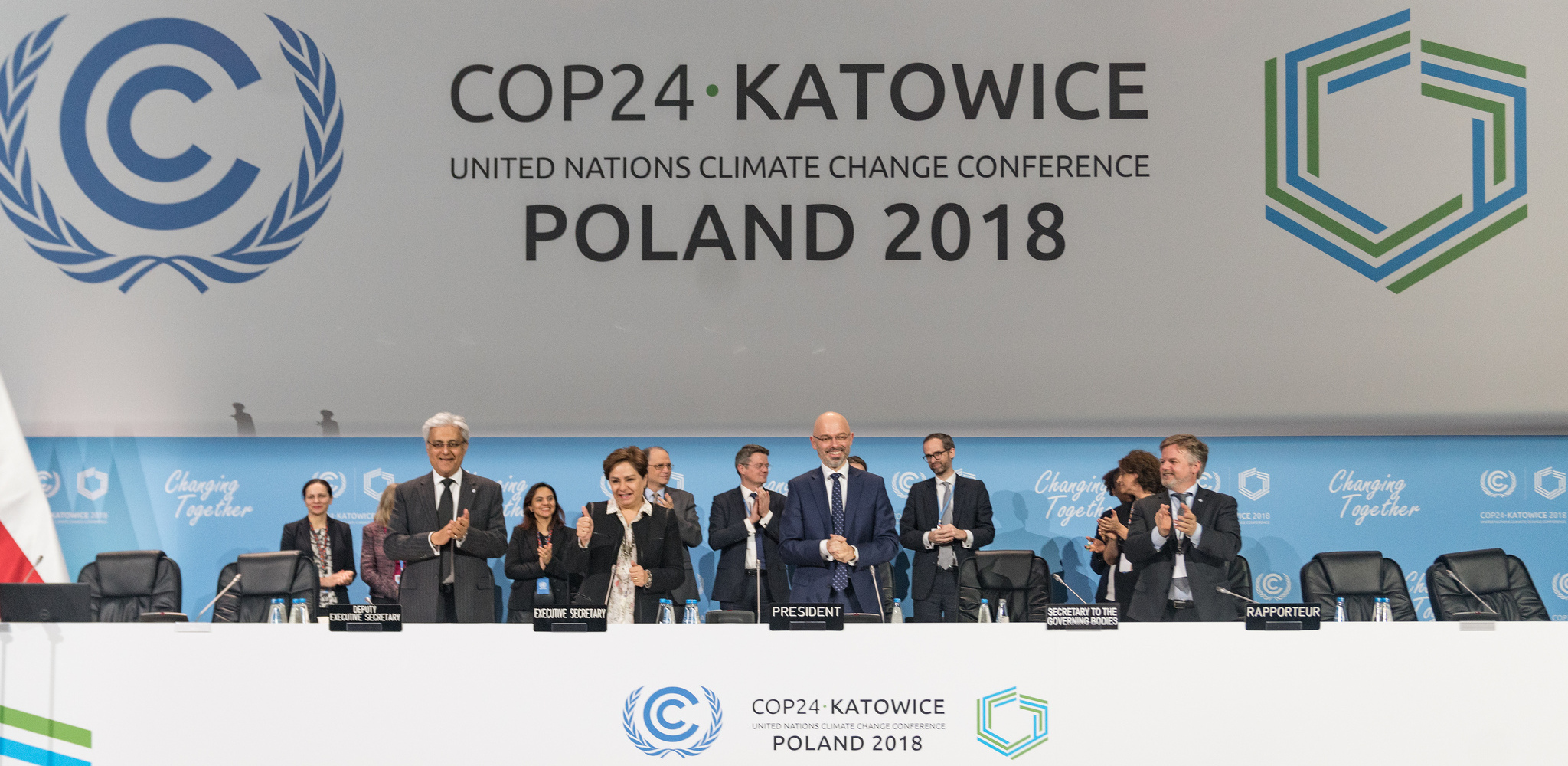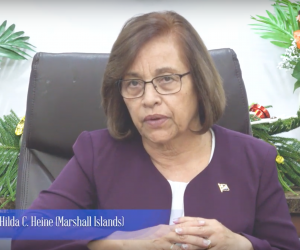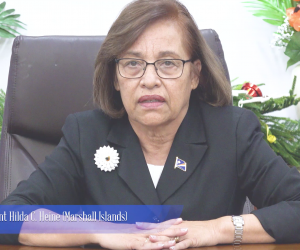COP24 Heeds Planetary Climate Emergency

Statement by the Chair of the Climate Vulnerable Forum
Outcome of UNFCCC COP24
“UN Decision Marks Phase of Special Vigilance – Jumemmej – for International Community to Address Planetary Climate Emergency”
-
All Nations to Enhance National Climate Efforts by 2020
The Office of the President of the Republic of the Marshall Islands released the following statement as Chair of the Climate Vulnerable Forum by H.E. David Paul, Hon. Minister-in-Assistance-to-the-President and Minister of Environment:
Katowice has responded to the plea of the most vulnerable with the 24th Conference of the Parties (COP24) under the UNFCCC by sending an unambiguous signal for all nations to deliver new national contributions (NDCs) to fight climate change by 2020 and calling for “the highest possible effort by all”. The more than 190 members of the United Nations have demonstrated that the aims of Paris Agreement are taken seriously by all countries, each of which now plans to take greater action than previously in order to keep the 1.5 degrees Celsius target within reach, and to safeguard the most vulnerable.
We have therefore entered a phase of special vigilance, or “Jumemmej” in Marshallese, as called for by the leaders of the Climate Vulnerable Forum (CVF) at our 22 November Virtual Summit, the first entirely online intergovernmental meeting of its kind, seeking unity and solidarity to address an emergency situation for the most vulnerable around the world.
Statement of @TheCVF Chair: #COP24 Heeds Planetary #Climate Emergency https://t.co/glooy7NKgk @MinisterDPaul #1o5C #talanoadialogue #Jumemmej #virtualclimatesummit pic.twitter.com/lUrHLFUvwj
— Climate Vulnerable Forum (@TheCVF) December 15, 2018
The COP24 decision has also given full recognition to the need for the enhanced ambition of developing countries to be enabled through the urgently scaled-up provision of finance, technology and capacity-building support by developed countries, while also continuing work on the raising of ambition before 2020. This will be vital to help unlock a truly global stepping up of climate action within the next two years. We will specifically be seeking support for the CVF Members to develop their enhanced NDCs during this period.
The Conference has also welcomed the landmark IPCC Special Report on 1.5 degrees Celsius, and the outcome of the Talanoa Dialogue, which should inform countries’ enhancement of NDCs. In an important step forward, the 1.5 degrees report is now to inform all aspects of the work of the UNFCCC, with a new focus area for the world’s governments established that can promote intensified efforts to keep the 1.5 degrees goal within reach.
We also welcomed the call on all nations to seize the opportunity of the UN Secretary-General’s 2019 Climate Summit to demonstrate their enhanced ambition, which will make a crucial contribution to the promotion of a thoroughly worldwide effort by all nations ahead of 2020.
The international community has therefore shown solidarity and unity in confirming it will take urgent steps to do more to keep the world’s most vulnerable safe. Non-state actors, civil society, business, the international economy, and local governments the world over have been given sufficient notice to begin work on greater commitments to action on climate change by early 2020 at the very latest. Showing the way: within the last month several members of the CVF have already brought forward new NDCs or indicated their intension to do so, including the Marshall Islands, Costa Rica, Fiji and the Maldives. All governments must return home from Poland and commence the work to have enhanced ambition of NDCs ready by 2020. If the world’s poor and vulnerable countries can step up their action, so can any nation.
Confidence has also been given to the implementation of the Paris Agreement with the adoption at COP24 of a comprehensive rule-book for the Agreement.
We welcome the recognition and concern for the current, urgent and emerging needs of developing countries particularly vulnerable to the adverse effects of climate change, such as the members of the CVF. We deeply regret, however, the Conference’s outcome utterly failing to address mounting loss and damage, including irreversible effects such as the extinction of species, which also fails to live up to the Paris Agreement’s more substantial focus on this vital life and death area of concern for the more than one billion people who live in CVF member countries.
Finally, we wish to extend appreciation to the UN Secretary-General for advocating for the interests of the world’s most vulnerable nations at the UN climate talks in Katowice and to the Polish presidency of the Conference for the outcome achieved in a demonstration that multilateralism and international environmental governance functions and is driving forward, in this instance, progressive action on the global threat of climate change.
Photo caption: Closing plenary following adoption of the decision of UNFCCC COP24 at Katowice, Poland on 15 December 2018. Source: UNFCCC; License: CC BY-NC-SA 2.0.



